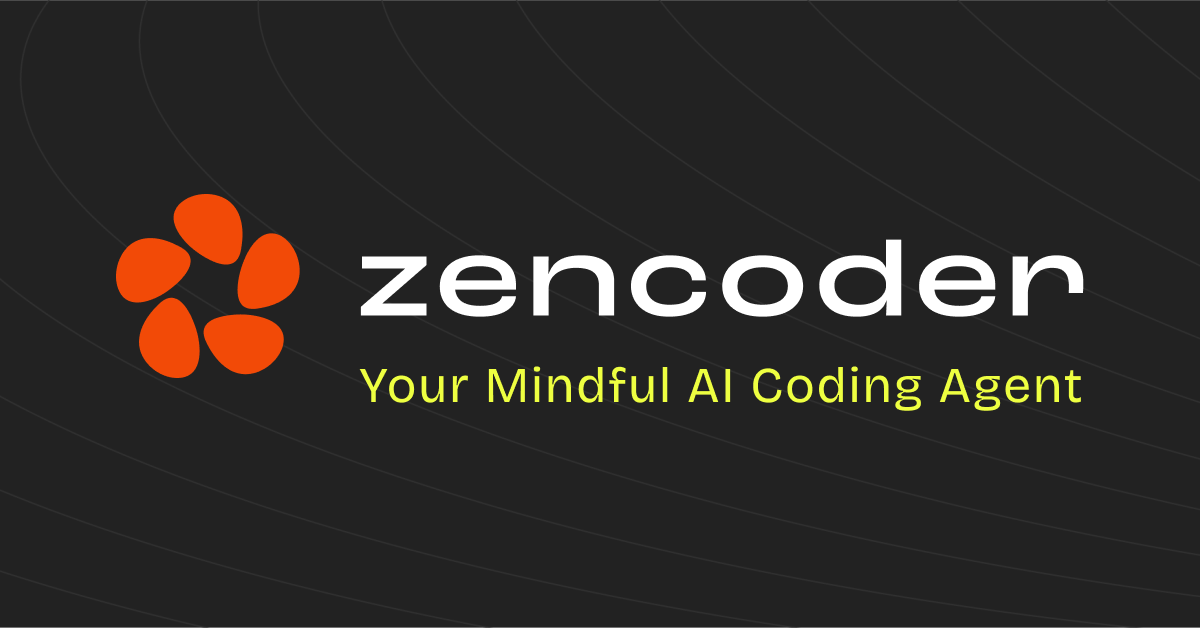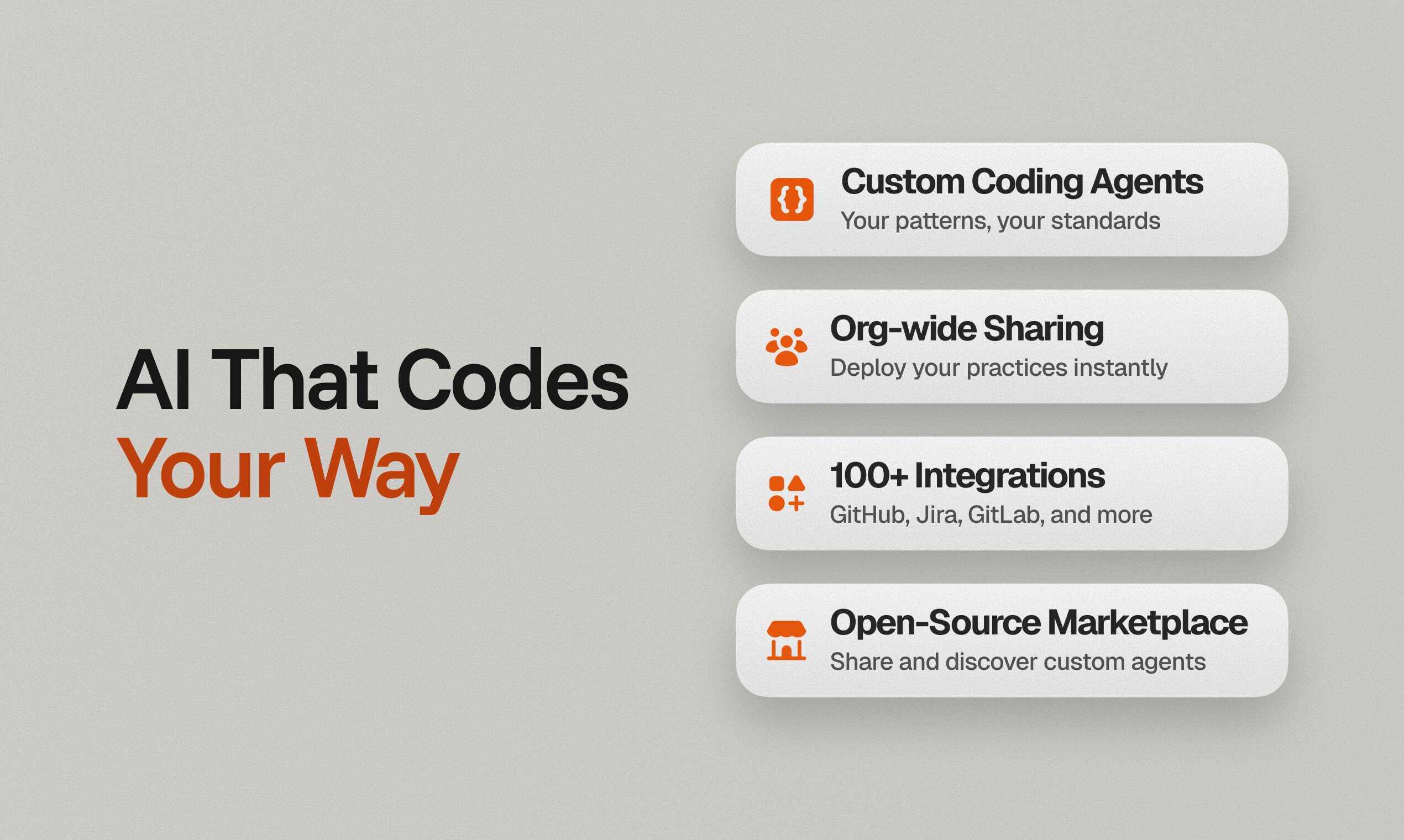
Table of Contents
Overview
Zencoder represents a paradigm shift in AI-powered software development, establishing itself as the industry leader with a groundbreaking 70% success rate on SWE-bench Verified—the highest performance achieved by any coding assistant platform as of 2025. This comprehensive AI coding agent platform enables engineering teams to create custom AI agents that understand their entire codebase, automate complex workflows, and scale institutional knowledge across organizations. Through its proprietary Repo Grokking™ technology and sophisticated agentic pipeline, Zencoder transforms how development teams approach coding, testing, and knowledge transfer in production environments.
Key Features
Zencoder delivers enterprise-grade capabilities specifically designed for modern software engineering teams.
- Repo Grokking™ Technology: Proprietary deep codebase analysis that goes beyond traditional RAG approaches, understanding structure, dependencies, and architectural patterns to deliver 90% accuracy in production code generation
- Zen Agents: Custom AI coding agents that encapsulate team-specific best practices, testing patterns, and coding standards into reusable, shareable automation tools
- Zentester Integration: Verification-first development approach with comprehensive end-to-end and unit testing capabilities that follow existing project patterns
- Multi-Agent Orchestration: Coordinated AI agents including Coding Agents, Unit Testing Agents, and custom workflow agents that operate autonomously across the development lifecycle
- Native IDE Integration: Seamless integration with VSCode and JetBrains IDEs (not forks), supporting 70+ programming languages with native performance
- Enterprise Connectivity: Native integrations with GitHub, GitLab, Jira, Linear, Sentry, Datadog, CircleCI, and 100+ development tools
- Agentic Pipeline: Self-improving mechanisms that validate, correct, and refine code outputs autonomously, reducing debugging time by up to 80%
How It Works
Zencoder operates through a sophisticated multi-layer architecture that combines deep contextual understanding with autonomous agent orchestration. The platform begins with Repo Grokking™, which analyzes entire codebases to build comprehensive semantic maps of project structure, coding patterns, and dependencies. This foundational understanding powers specialized Zen Agents that can be configured to handle specific engineering tasks, from code generation and refactoring to test creation and documentation. The agentic pipeline continuously validates and improves outputs through iterative feedback loops, ensuring code meets production standards before delivery. Teams can create custom agents that codify their specific workflows, testing patterns, and architectural decisions, then deploy these agents across repositories for consistent automation and knowledge transfer.
Use Cases
Zencoder addresses critical challenges across the entire software development lifecycle.
- Production Code Generation: Automate complex multi-file coding tasks with context-aware generation that integrates seamlessly with existing architectures and follows established patterns
- Automated Testing Workflows: Generate comprehensive test suites that understand project-specific testing frameworks and edge cases, with agents that continuously improve coverage
- Legacy Code Modernization: Deploy agents to systematically refactor and modernize large codebases while maintaining functionality and improving maintainability
- Team Knowledge Scaling: Transform senior engineering expertise into reusable agents that can onboard new developers and ensure consistent code quality across growing teams
- DevOps Pipeline Integration: Automate code review, vulnerability scanning, and deployment preparation through integrated agents that work within existing CI/CD workflows
Pros \& Cons
Advantages
Zencoder offers compelling benefits for enterprise engineering teams.
- Industry-Leading Performance: 70% SWE-bench Verified success rate significantly outperforms competitors like GitHub Copilot and Cursor
- Deep Contextual Understanding: Repo Grokking™ technology provides superior codebase comprehension compared to traditional RAG-based approaches
- Production-Ready Code Quality: 90% accuracy rate for generated code with built-in validation and error correction
- Comprehensive Tool Integration: Native connectivity with 100+ development tools eliminates workflow friction
- Scalable Knowledge Transfer: Custom agents enable systematic capture and distribution of engineering expertise
- Enterprise Security: SOC 2 Type II, ISO 27001 compliance with SSO, audit logs, and on-premise deployment options
Disadvantages
Organizations should consider these factors when evaluating Zencoder.
- Specialized Focus: Primarily designed for software engineering teams, limiting applicability for non-technical departments
- Learning Curve: Maximizing agent customization benefits requires understanding of engineering workflows and best practices
- Infrastructure Dependencies: Enterprise features require integration with existing development toolchains and may need process standardization
- Cost Considerations: Advanced features and enterprise capabilities involve subscription costs that may impact smaller development teams
How Does It Compare?
Zencoder distinguishes itself in the competitive AI coding assistant landscape through superior performance metrics and specialized engineering focus.
- GitHub Copilot: While Copilot offers broad IDE integration and GitHub ecosystem connectivity, Zencoder achieves significantly higher SWE-bench performance (70% vs. approximately 45% for Copilot-based solutions) and provides deeper codebase understanding through Repo Grokking™ technology. Zencoder’s custom agent capabilities also exceed Copilot’s more generalized approach.
- Cursor: Cursor provides an AI-native editor experience with strong multi-line editing capabilities, but Zencoder’s specialized agents and production-ready code generation (90% accuracy) surpass Cursor’s general-purpose approach. Zencoder’s enterprise integrations and team knowledge scaling also address organizational needs beyond individual developer productivity.
- Anthropic Claude 3.5 Sonnet: As the previous SWE-bench leader at 49%, Claude represents strong general coding capability. However, Zencoder’s 70% performance demonstrates the advantage of specialized engineering-focused architecture over general-purpose language models for software development tasks.
- Tabnine and Amazon CodeWhisperer: These established coding assistants offer solid code completion and enterprise features, but lack Zencoder’s advanced agent orchestration, custom workflow capabilities, and superior benchmark performance for complex software engineering tasks.
- Windsurf and Continue.dev: These newer AI coding platforms provide innovative approaches to code generation, but Zencoder’s proven production performance, enterprise integrations, and specialized agent framework position it as the choice for teams requiring reliable, scalable coding automation.
Final Thoughts
Zencoder represents the current pinnacle of AI-powered software engineering assistance, validated by its industry-leading 70% SWE-bench Verified performance and comprehensive enterprise feature set. The platform’s unique combination of Repo Grokking™ technology, custom agent orchestration, and deep tool integration positions it as an essential platform for engineering teams seeking to scale expertise and accelerate development cycles. While the platform requires technical expertise to fully utilize its capabilities and represents a significant investment for organizations, its proven ability to deliver production-ready code and systematically capture engineering knowledge makes it invaluable for teams committed to AI-enhanced software development. The recent Machinet acquisition further strengthens Zencoder’s position in the rapidly consolidating AI coding assistant market, making it a strategic choice for forward-thinking engineering organizations.

